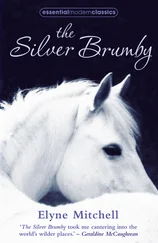“I’m beyond offense at this point, Fern,” says our mayor.
UP CHURCH LANE we come to Kilcrannog square. Ahead is Fitzgerald’s bar, a low, rambling building as old as the village. It’s been added to over the centuries and painted white, though not recently. Crows roost on its ridge tiles and gables as if up to no good. On our right’s the diesel depot, which was a Maxol garage when I first moved here, and where we used to fill up our Toyotas, our Kias, our VWs like there was no tomorrow. Now it’s just for the Co-op tanker that goes around from farm to farm. On the left’s the Co-op store, where the ration boxes’ll be distributed later by the committee, and on the south side of the square’s the Big Hall. The Big Hall also serves as a marketplace on Convoy Day, and we go in, Martin holding the door open so I can wheel in my pram. The hall’s noisy but there’s not a lot of laughter today — Hinkley Point casts a long shadow. Martin says he’ll see me later and goes off electioneering, Aileen looks for Ozzy to speak about metal parts for her sailboat, and I start foraging through the stalls. I browse among the trestle tables of apples and pears and vegetables too misshapen for Pearl Corp, home-cured bacon, honey, eggs, marijuana, cheese, homebrewed beer and poitín, plastic bottles and containers, knitted clothes, old clothes, tatty books, and a thousand things we used to give to charity shops or send to the landfill. When I first moved to the Sheep’s Head Peninsula thirty years ago, a West Cork market was where local women sold cakes and jam for the craic , West Cork hippies tried to sell sculptures of the Green Man to Dutch tourists, and people on middle-class incomes bought organic pesto, Medjool dates, and buffalo mozzarella. Now the market’s what the supermarket used to be: where you get everything, bar the basics found in the ration boxes. With our modified prams, pushchairs, and old supermarket trolleys, we’re a hungry-looking, unshaven, cosmeticless, jumble-sale parody of a Lidl or Tesco or Greenland only five or six years ago. We barter, buy, and sell with a combination of guile, yuan, and Sheep’s Head dollars — numbered metal disks engraved by the three mayors of Durrus, Ahakista, and Kilcrannog. I turn forty-eight eggs into cheap Chinese shampoo you can also use to wash clothes; some bags of seaweed salt and bundles of kale into undyed wool from Killarney to finish a blanket; redcurrant jelly — the jars are worth more than the jelly — into pencils and a pad of A4 paper to stitch some more exercise books, as the kids’ copy books have been rubbed out so often that the pages are almost see-through; and, reluctantly, a last pair of good Wellington boots I’ve had in their box for fifteen years into sheets of clear plastic, which I’ll use to make rain capes for the three of us, and to fix the polytunnel after the winter gales. Plastic sheeting’s hard to find, and Kip Sheehy makes a predictable face, but waterproof boots are even rarer, so by saying, “Maybe another time, then,” and walking off I get him to throw in a twenty-meter length of acrylic cord and a bundle of toothbrushes as well. I worry about Rafiq’s teeth. There’s very little sugar in our — or anyone’s — diet, but there are no dentists west of Cork anymore.
I chat with Niamh Murnane, Tom Murnane’s wife, who’s sitting at a table with hemp sacks of oats and sultanas; Stability no longer has any yuan to pay teachers, so it’s sending out salaries of tradeable foodstuffs instead. I was hoping to find sanitary towels for Lorelei, too, as Stability no longer includes them on the list of necessities, but I’m told there weren’t any on the last Company container ship. Branna O’Daly uses strips of old bedsheets, which we’ll need to wash, ’cause even old bedsheets are getting rarer. If only I’d had the foresight to lay in a store of tampons a few years back. Still. Complaining is rude to the three-million-odd souls who have to somehow survive outside the Cordon.
• • •
IN THE ANNEX, Sinéad from Fitzgerald’s bar serves hot drinks and soup made on the kitchen range that keeps the Big Hall warm in winter. As I trundle up with my pram, Pat Joe, the Co-op mechanic, pulls up a chair for me with his giant oily hands, and by now I need the sit-down. The road from Dooneen gets longer every Friday, I swear, and the pain in my side’s more acidy than before. I should’ve spoken with Dr. Kumar, but what could she do if it’s my cancer waking up? There’s no CAT scans anymore, no drug regime. Molly Coogan, who used to design websites but who now grows apples in polytunnels up below Ardahill, and her husband, Seamus, are also at the table. As the Englishwoman there, I’m asked if I know anything about Hinkley Point, but I have to disappoint them.
Nobody else has had any luck with threading out of the island of Ireland for two or three days now. Pat Joe spoke with his cousin in Ardmore in East Cork last night, however, and holds court for a few minutes. Apparently two hundred Asylumites from Portugal landed on the beach in five or six vessels, and are now living in an old zombie estate built back in the Tiger Days. “As bold as you please,” says Pat Joe, nursing his soup, “as if they own the place, like. So the Ardmore town mayor, he leads a — a deputation up to the zombie estate, my cousin was one of them, to tell the Asylumites that, very sorry and all, but they can’t winter there, there’s not enough food in the Co-op or wood in the plantation for the villagers as it is, let alone two hundred extra mouths, like. This big feller walks out, takes out a gun, cool as you please, and shoots Kenny’s hat off his head , like in an old cowboy western!”
“Shocking! Shocking!” Betty Power is a theatrical matriarch who runs Kilcrannog’s smokehouse. “What did the mayor do?”
“Sent a messenger to the Stability garrison in Dungarvan, asking for assistance, like — only to be told their jeeps had no feckin’ diesel.”
“The Stability jeeps had no diesel?” asks Molly Coogan, alarmed.
Pat Joe purses his lips and shakes his head. “Not one drop. The mayor was told to ‘pacify the situation’ as best he could. Only how’s yer man s’posed to manage that when his deadliest weapon’s a feckin’ staple gun?”
“ I heard,” says Molly Coogan, “that the Sun Yat-sen ”—one of the Chinese superfrigates that accompanies the Chinese container ships on the polar route—“sailed into Cork Harbor last week with five hundred marines on deck. A bit of a show of force, like.”
“Sure you’re missing a zero, there, Moll,” says Fern O’Brien, who leans over from the next table. “My Jude’s Bill was on loading duty at Ringaskiddy that day so he was, and he swears there wasn’t a man under five t’ousand trooping the color under the Chinese flag.”
I can imagine Ed, my long-dead partner, making hang-dog eyes at the authenticity of this so-called news but there’s more to come as talk switches to a sister-in-law of Pat Joe’s cousin in County Offaly, who knows a “Man in the Know” at Stability Research in the Dublin Pale who reckons the Swedes have genomed a rustproof, selffertile strain of wheat. “I’m only passing on what I’ve been told,” says Pat Joe, “but there’s talk of Stability planting it all over Ireland next spring. If people have full bellies, the Jackdawing and rioting’ll stop.”
“White bread,” sighs Sínead Fitzgerald. “Imagine that.”
“I’d not want to go pissing on your snowman now, Pat Joe,” says Seamus Coogan, “but was that the same Man in the Know who said the Germans had a pill that cured Ratflu, or that the States was reunited again, and the president was sending airdrops of blankets, medicine, and peanut butter to all the NATO countries? Or was it that friend of a friend who met an Asylumite outside Youghal who swore on his mother’s life that he’d found a Technotopia where they still have twenty-four-hour electricity, hot showers, pineapples, and dark chocolate mousse, in Bermuda or Iceland or the Azores?”
Читать дальше












